Moving To Singapore? Things I wish I knew
Moving to Singapore? There are a few things you should know before you do.
I must admit that I knew very little about Singapore before relocating. I arrived with no pre-conceived ideas and zero expectations and needless to say, there were definitely a few surprises waiting for me! And so, to help you prepare for your journey move to Singapore, I have compiled an honest list of things I wish I had known. Let’s get into it!
Jump To...
It Rains A lot!
I’m sure you’ve heard about the humid weather, but did you know that Singapore has more rainy days than London? In Singapore, it rains an average of 167 days a year and the official “wet” season falls between September – February. These tropical storms are both incredible and highly inconvenient. Rest assured, if you plan a barbeque – it will rain. If you plan to spend the day on the beach- it will rain! The rain dictates how you will spend your day and you should ALWAYS carry an umbrella with you.
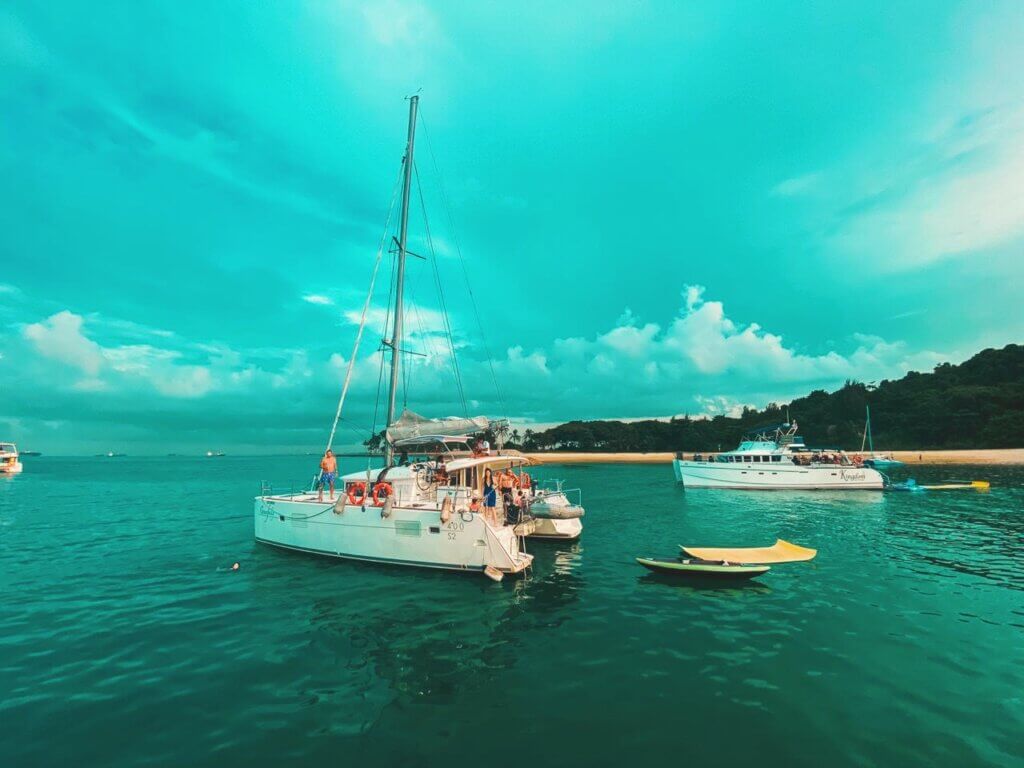
Flip flops All Year Round
The general dress code in Singapore is very casual. You can go anywhere in flip-flops and most people dress for comfort. You’ll soon get used to shorts, dresses, and Hawaiian -style shirts. However, this does not apply to corporate offices- they certainly dress to impress.
Everyone Speaks English
Upon arrival in Singapore, you will soon discover that the most commonly spoken language in the city is English. There are four official languages (English, Tamil, Mandarin, and Malay) but English is the dominant one. It was a relief to be able to communicate with one another with ease. So do not worry, if you’re moving to Singapore you will not find yourself lost in translation. Of course, in order to truly integrate into society- you should learn Singlish! Derived from the interactions between an array of ethnic groups, this hybrid language is expressive and delightful. In the beginning, it can be tough to understand but as you grow accustomed to it, you’ll find yourself using Singlish words and phrases without knowing. I’ve written an article about the important Singlish words every expat should know here- check it out!
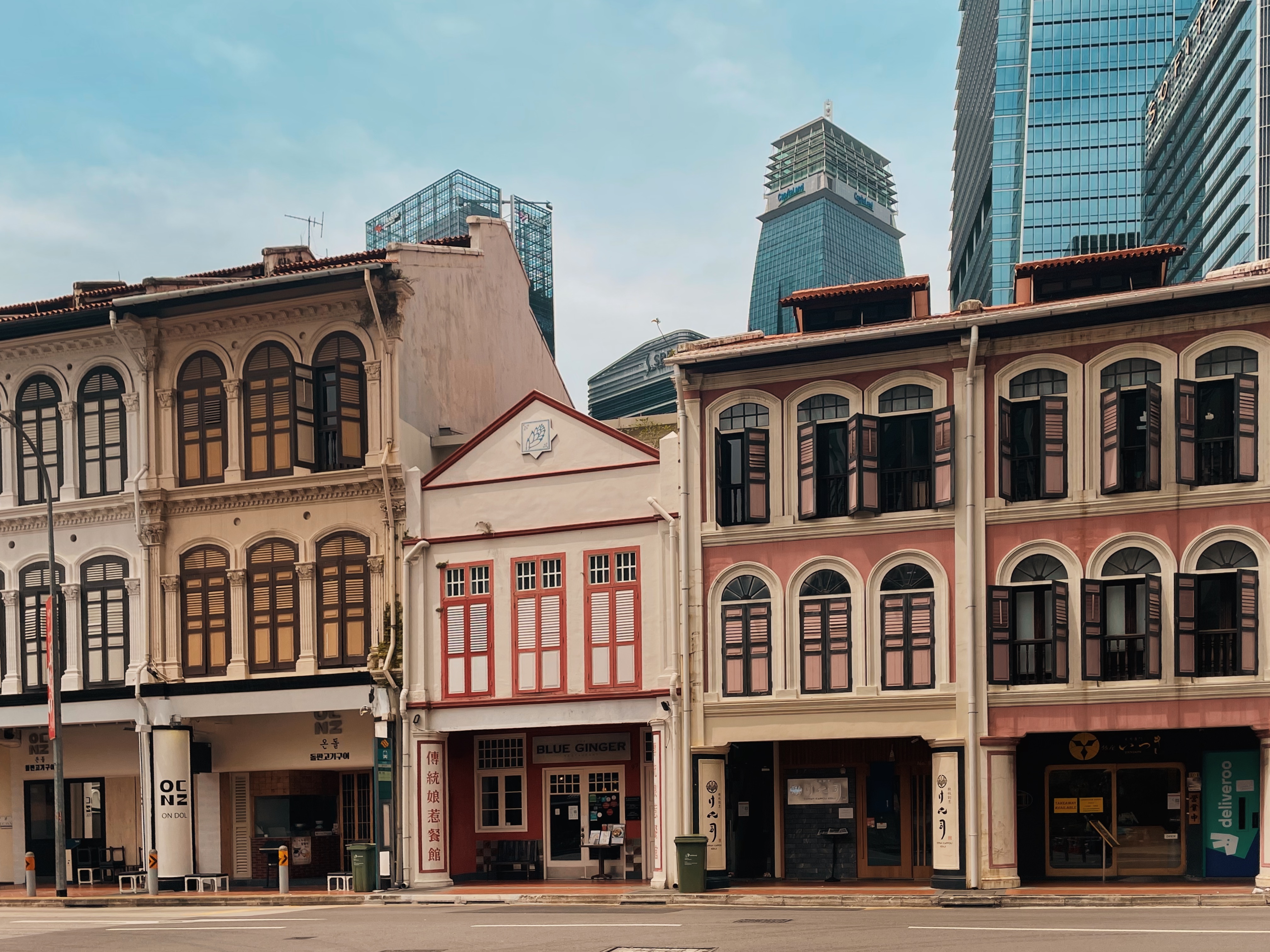
Work Passes And Freelancing
If you’re moving to Singapore with your partner on A Dependent Pass (DP) and hoping to find employment quickly, think again. In the past, DP holders could work by obtaining a Letter Of Consent (L.O.C) from the government. However, since May 2021 the law has changed and DP holders now need to apply for an applicable work pass, like an Employment Pass, S-Pass, or Work permit. Obtaining a work pass in the current climate is incredibly difficult. You can read more about it here.
It is also illegal for a foreigner on a work pass to freelance in Singapore. In order to work legally, you have to work for one company only. That includes all side hustles and part-time work. So, before moving to Singapore, you should do thorough research regarding work restrictions.
Singapore Is A Foodie Paradise
The food in Singapore is out of the world. From cheap local delicacies to Michelin-Star winning recipes, there is something for everyone. Bring your appetite, an open mind, and your packet of tissues to “Chope” with.
“Hawker Centres” are the local food markets. They serve an array of local dishes for as little as 1$ -5$ and every dish is delicious. Be prepared to see dishes like “Fish Eye Soup” and “Lamb Brains” on the menu but do not let that deter you. Famous dishes like “Chilli Crab”, “Kaya Toast” and “Chicken Rice” are available at most Hawkers.
As a first-time visitor, it’s completely normal to feel overwhelmed by the vast amount of stalls. You’ll see dead poultry hanging from the ceiling, unfamiliar dishes, and so much more. But fear not, Singapore takes its food hygiene very seriously and each stall has a hygiene rating. If it’s western food you’re looking for, you are spoiled for choice. You’ll find the usual big chain restaurants of course, but it’s the specialty restaurants that you must try!
Top Tip: When dining at a Hawker center, make sure to carry a packet of tissues with you. There are no napkins provided and you will use this to Chope (Reserve) your table. Chope a table before you set off to select your dishes.
Now on that note…
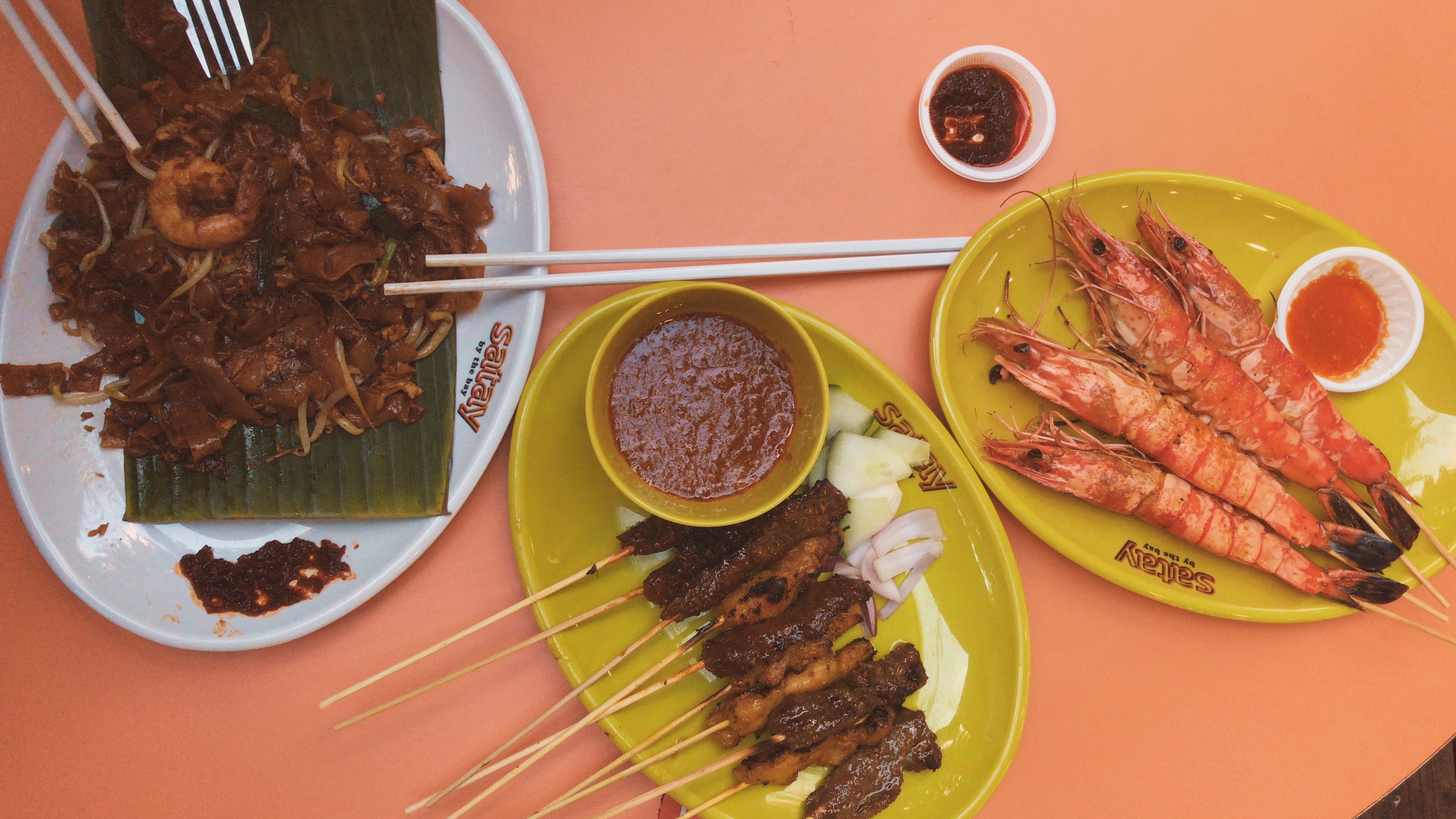
You Won’t Eat At A Hawker Centre Every Day
Before moving to Singapore, many prospective expats are told that it’s possible to eat at a Hawker center every day to save money. This irritates me tremendously, as it’s not viable and I do not know many expats who do this. Yes, it is true that many locals do in fact eat every meal at one of these centers. But to be very honest- the food is delicious but far from healthy. Filled with MSG, oil, and saturated fats, you will soon realize the overall impact on your health. Sure it’s great once in a while, but no you will not be eating there every day so you should budget for buying groceries and cooking at home instead.
Singaporeans Hate Conflict
This is a very interesting cultural trait and can oftentimes be hard to navigate. You will often see locals pass by a confrontation or awkward situation without batting an eye. In the workplace, they can come across as quite stoic and you won’t hear any direct complaints. This is even evident in their day-to-day lives. When it comes to government policies etc, many prefer to toe the line without question- even if they do disagree wholeheartedly. Singaporeans follow the rules and this is something you will have to learn to love about them.

Protocol Above All
There are many MANY rules in Singapore. It’s a rule-abiding nation and every crime, no matter how small will be dealt with. Citizens follow the rules – except when it comes to Jaywalking (everyone does that!). It’s true that it is illegal to litter, however, I have seen tons of litter in public areas. Yes, walking around naked in your house is illegal but only if someone else can see you!
But in general, there is no “grey zone” in Singapore, no way around something- it’s black or it’s white. Everything is followed as written and there is no wiggle room and protocol will always trump common sense. This can be very frustrating at times and you have to learn to live with it. So before moving to Singapore, make sure you brush up on the rules!
The Public Transport Is Fantastic
Owning a car in Singapore is incredibly expensive. Unless you have loads of disposable income, it’s quite unattainable for the average expat.
Singapore’s bus and rail system is efficient, clean, and affordable. With the MRT (Mass Rapid Transit) you can reach anywhere on the island in 10- 50minutes (very rarely over an hour unless you are traveling in peak time). Trains arrive every 2-3 minutes and can cost as little as 1$ per trip, depending on the distance you decide to travel.
Compared to most countries, taking a taxi in Singapore won’t break the bank. You can hop in a Grab (like uber) or hail a Comfort Cab and you’ll very rarely pay more than 7$ for a 10minute trip. For a longer trip (30min +) you’ll pay around 25$-30$.
Dengue Fever Is A Thing
Jip that’s right! Dengue fever is still quite prevalent in Singapore. The luscious landscape and wet weather provide the perfect habitat for mosquitos. The government embarks on frequent fuming and house inspections to manage the outbreak but you still have to be really mindful. Make sure to download the NEA App to identify the existing Dengue clusters and try to avoid renting an apartment in such a cluster. And of course- always carry mozzie spray with you!
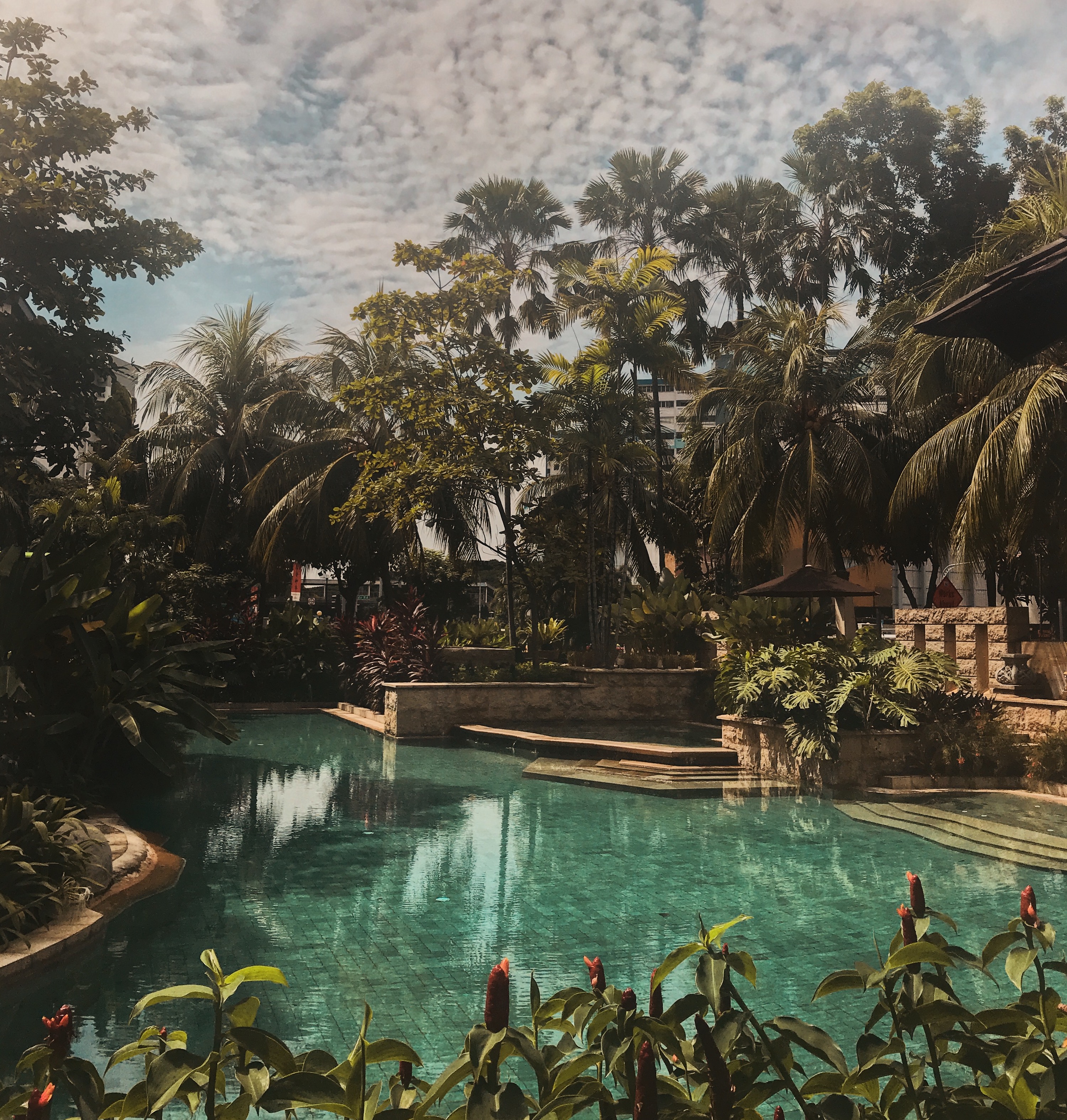
Singaporeans LOVE to queue
‘Kiasu’ is a Hokkien word that directly translates to “fear of losing out”. It also describes the “selfish and grasping attitude” that accompanies that fear. Being “Kiasu” means that you are taking every possible measure to ensure that you don’t miss out. I find it an enduring cultural trait but be prepared to queue for hours. The patience to queue for so long boggles my mind! Also, to make sure you do not miss out on anything in Singapore, arrive early or book in advance. It’s okay to be ‘Kiasu’ sometimes!
Anti-Foreigner Sentiment
Over the last few years, citizens have been a lot more vocal about foreign workers entering Singapore. The internet is ablaze with xenophobic comments and appeals to the government to stop embracing foreigners. You’ll often see phrases like “Foreign Trash” appear online and it can be really daunting. I’m not sure why expats choose not to warn others about this prior to relocation. It’s important to know that this sentiment is not echoed by all, but be prepared to feel unwelcomed at times. You can read more about this in my article here.
Renting In Singapore Is No Walk In The Park
When you find a place you like, you’ll most likely have to sign a two-year contract and pay a month’s deposit per rental year. It’s a lot to pay upfront- so before moving to Singapore make sure to set aside some savings for this. If you are lucky, you might find a Landlord open to a one-year rental but this is rare. It’s worth knowing that an early termination will result in a huge financial penalty. The “Diplomatic Clause” is something to include in your contract and it usually “activates” only after a 12-month period. This Clause allows you to exit without paying hefty penalties but can only come into play if you can no longer work and live in the country. You can read more about renting in Singapore here.
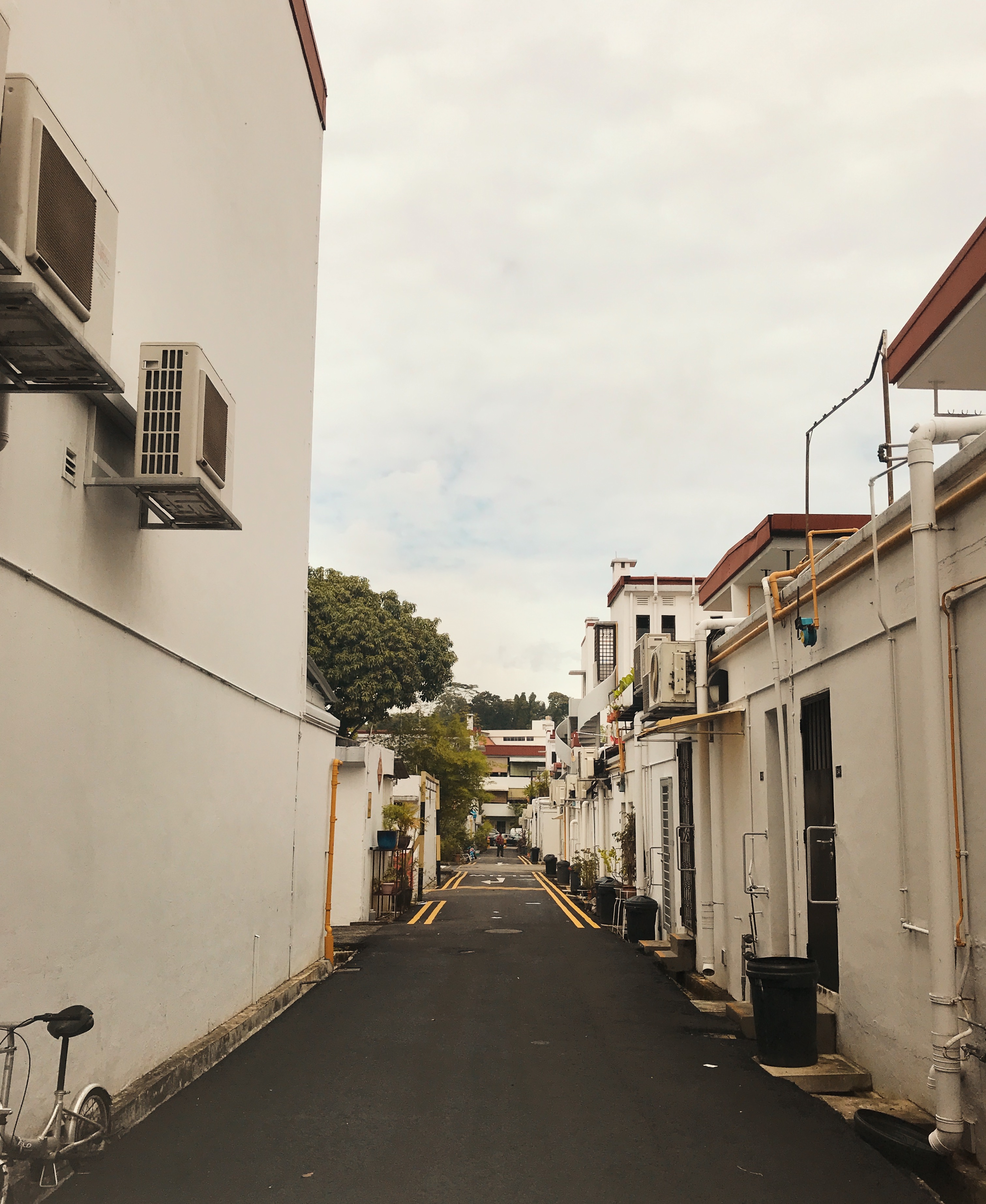
The Low Crime Rate
The best part about living in Singapore is the safety. As a South African, safety is something you just cannot take for granted. The low crime rate in Singapore allows a sense of unparalleled freedom and you can feel safe no matter where you are. You can leave your cellphone unattended on a table to “reserve” it and you’re free to travel alone late at night by yourself.
My Musings
There are many different ways to research a country prior to relocating. In my opinion, the most reliable source is an expat currently “on the ground” or an expat that used to live there and is willing to be transparent about their experiences. Singapore is an amazing country with a lot to offer and for most, the things I wish I knew might not come as a surprise. If you would like to know why Singapore may or may not be the right place for you can read more about that here.
Are there things you wish you knew before moving to Singapore? I’d love to hear from you!